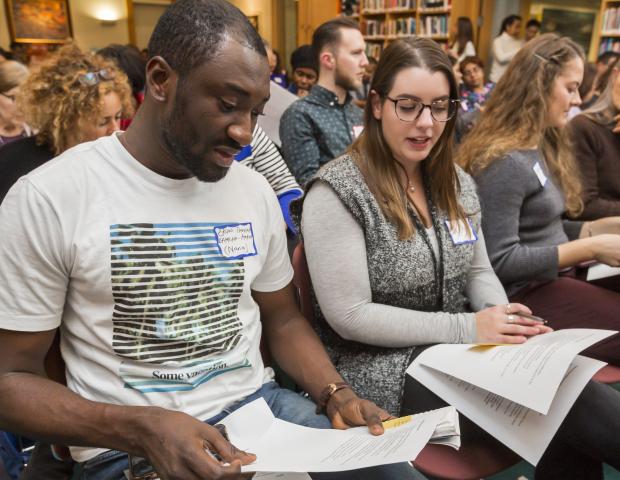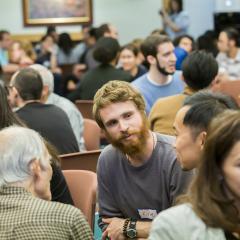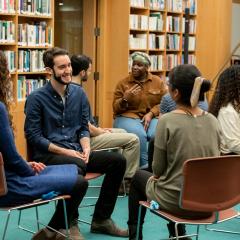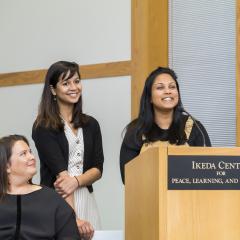What Do We Mean By Dialogue?
Discussion at 2018 Ikeda Forum
Dialogue is the foundation for all of the Center’s activities, but more than that, in the view of our founder, Daisaku Ikeda, it is also the mode of engagement with others and the world that holds the greatest potential for enabling us to realize a more peaceful, flourishing world. This is because dialogue, as Mr. Ikeda conceives of it and we pursue it, is a forward looking and unifying pursuit.
As outlined by Dr. Melissa Bradford in her study on Mr. Ikeda’s dialogue ethos she identified several ways this is manifested. Specifically, through dialogue we: reach deeper mutual understanding; create value by finding meaning together and discovering ways of contributing to the well-being of others; enhance our common humanity by coming to know one another; find ways to transform conflicts fueled by the ego-based lesser self; and learn we can communicate with anyone, especially when we realize that all of us suffer. Note that while this vision includes dialogue of the “difficult discussions” type—Ikeda does call for fierceness when confronting anti-human realities such as the threat of nuclear—the overall direction of this ethos is toward achieving, without coercion, what is often referred to as unity in diversity. Thus, if the ultimate tool of coercion is war, then dialogue is its antithesis and the peacebuilding practice par excellence. Perhaps it is best to define Ikeda-inspired dialogue by the attributes of the people who practice it: a commitment to not prejudging or categorizing people, a humble willingness to learn from others, and strong faith in what we can achieve together if we build on our combined experiences, insights, and ideals. It can be said that practitioners of this mode of dialogue all are engaged in a process of being and becoming, and always seek to bring out the best in others.



